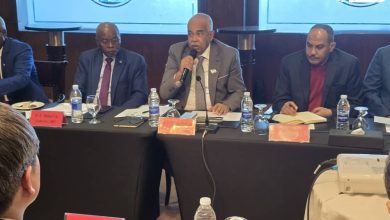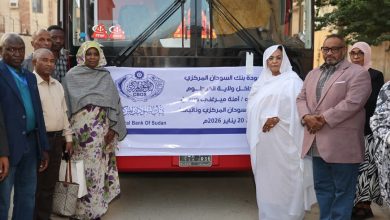Transfer of Sudan Central Bank’s Authority to the Sovereignty Council
Waleed Daleel
A decision to transfer the Sudan Central Bank’s authority to the Sovereignty Council was issued by Abdel Fattah Al-Burhan, Chairman of the Sovereignty Council, in a constitutional decree numbered (10) of 2024, stipulating the central bank’s subordination to the Sovereignty Council.
Undoubtedly, independence remains a fundamental principle in ensuring the proper functioning of central banks, particularly concerning their goal of price stability. However, central banks need to enhance their performance. They should increase the transparency of their decisions and actions, with clear public disclosure being essential in this regard.
Ensuring the long-term independence of central banks can only be achieved by strengthening their governance, transparency, and accountability simultaneously. This is a crucial step in rebuilding public trust in central banks as reliable institutions that defend non-inflationary and job-creating economic policies.
Today, central banks face many challenges that affect their independence, with growing demands for lowering interest rates, even prematurely, while political interference in decision-making and appointments within the banks is increasing. Governments and central banks must resist these pressures.
Other government authorities have clear responsibilities to help central banks achieve their mandates and overcome the risks they face. This not only includes laws advocating independence but also adhering to both the letter and spirit of these laws.
Furthermore, mindful fiscal policies that maintain debt sustainability help mitigate the risks of “fiscal dominance”—the pressure on the central bank to provide low-cost financing to the government, which ultimately fuels inflation. Prudent fiscal policies also create more budgetary space to support the economy when needed, enhancing economic stability.
Another shared responsibility between governments and central banks is maintaining a strong and well-regulated financial system.
According to Sudan’s Transitional Constitution of 2005, Chapter Six – Banking System, under the restructuring of the Central Bank of Sudan, Article (202), Clause (4) stipulates that a board of directors shall be established for the Central Bank of Sudan, responsible to the Presidency, including nine members, with the bank’s governor as chairman, two deputy governors, and six Sudanese members of high competence appointed by the President. Decisions of the board must be unanimous on matters that may negatively affect the interests of customers of either bank window. The president also appoints the governor and his deputies, while the governor, in consultation with the board, appoints senior bank officials. Therefore, according to the previous regime’s constitution, the bank reported to the presidency.
According to the current constitutional document, in Chapter Sixteen, under the Miscellaneous Provisions section, Clause (74), the Central Bank of Sudan reports to the Council of Ministers, meaning it falls under the authority of the Prime Minister. The document also states that all executive powers of the President, mentioned in any applicable law, shall transfer to the Prime Minister.



